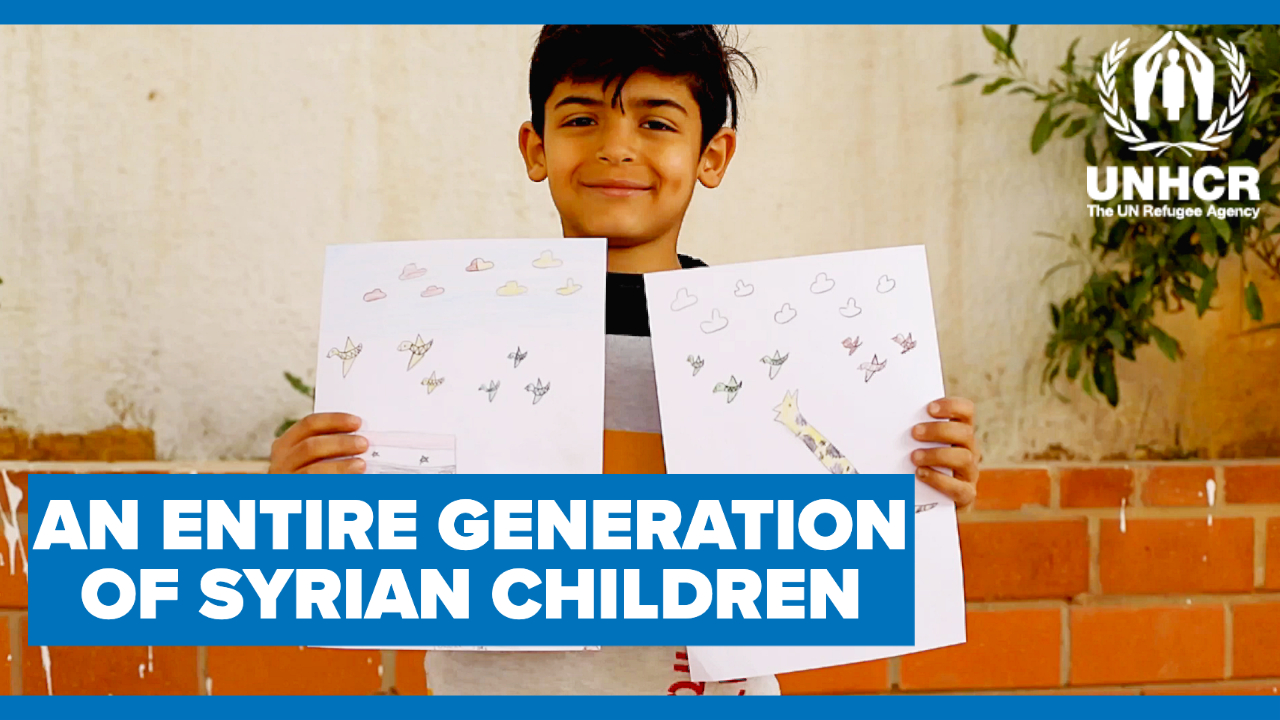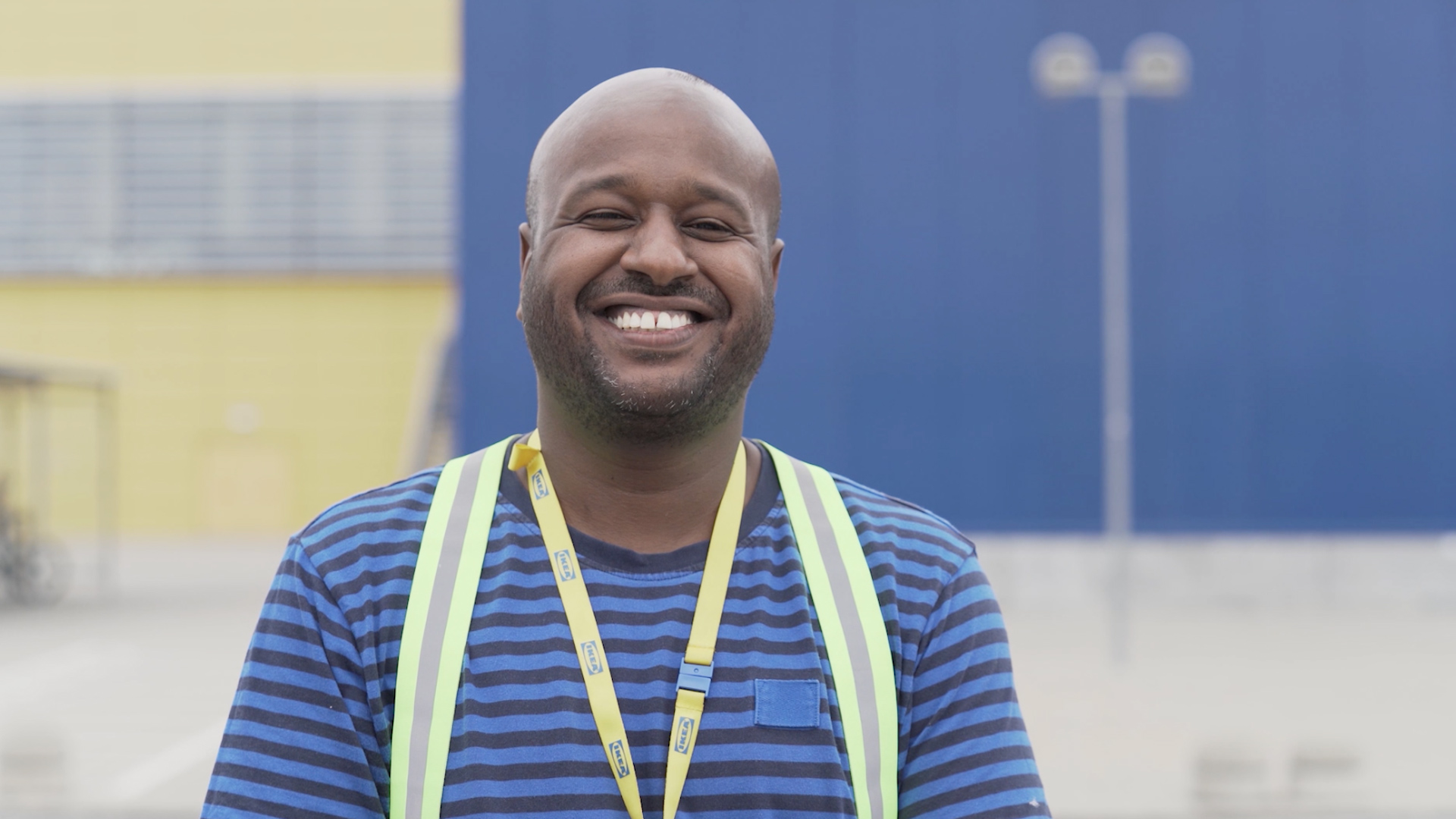UNHCR to deliver relief for Iraqis fleeing Falluja, Iraq
UNHCR to deliver relief for Iraqis fleeing Falluja, Iraq
UNHCR is today (Friday 27 May) delivering emergency relief supplies to families who managed to escape the besieged Iraqi city of Falluja over the last few days.
More than 800 people have fled Falluja, mostly from outlying areas, as the government continues its military offensive to re-take control of the city, around 60 kilometres west of the capital, Baghdad. Falluja was the first city to be taken by extremist groups in January 2014. Since then, more than 3.2 million people have been displaced across Iraq.
Some 50,000 civilians still remain trapped inside Falluja, prevented from escaping by extremist forces as the city continues to come under heavy bombardment by Iraqi forces. In December, routes out of the city were cut off and civilians prevented from leaving. Since then, food has been in short supply, people are relying on expired rice and dried dates, and several starvation-related deaths have been reported. Families have had to rely on unsafe water sources, including drainage water from irrigation canals. Health facilities and medications are not available in the area, leading some families to reportedly use herbal medicine for the purpose of treatment.
UNHCR and its partner, Muslim Aid, will distribute emergency relief items to families who have escaped Falluja and are sheltering in one camp it has helped to set up in Amiriyat al-Falluja, in Anbar governorate. The agency will also open two new camps next week in Habbaniyah Tourist City, that will able to accommodate 500 newly-displaced families.
The number of families who’ve escaped, however, is still very small, given the tens of thousands of people still trapped in Falluja.
Families have told UNHCR and its protection partners harrowing tales of their escape, travelling on foot for hours at night, moving across fields and hiding in disused irrigation pipes. Others have lost their lives trying to leave the city, including women and children.
Several people, including women and children, have been killed trying to escape.
Inside Falluja, there have been reports of a dramatic increase in the number of executions of men and older boys in Falluja refusing to fight on behalf of extremist forces. Other reports say a number of people attempting to depart have been executed or whipped; and one man’s leg was reportedly amputated.
In addition, many people are reported to have been killed or buried alive under the rubble of their homes in the course of ongoing military operations.
It is vital that safe routes are opened, allowing civilians access to safety and live-saving assistance.
UNHCR and its partners have already built extra shelters ready to assist newly-displaced families and we will distribute emergency supplies to provide them with some essential daily items.
Background:
Iraqi Prime Minister, Haider al-Abadi, announced today (May 23) on TV and via social media (Twitter) that the government has started a military operation to retake the city of Falluja from extremist forces.
A day before his announcement, Iraq's military warned civilians to prepare to leave town before fighting started. Officials said key corridors will be provided for civilians to make their way to camps outside the city. On State TV, military officials said that families who could not flee should raise a white flag so as not to be targeted. A hotline number (195) was set up for families inside the city to report incidents and ask for help.
Government officials recently estimated that 10,000 families are currently present in Falluja city, some 50 kilometres west of Baghdad. It was the first Iraqi city to fall to extremist forces in 2104 and is one of their two remaining strongholds in Iraq (the other being Iraq’s second city of Mosul).
For the past few weeks, there has been intensified fighting around Falluja and airstrikes by coalition forces as the Iraqi Security Forces advanced towards the city.
In December, supply routes to Falluja were cut off by the Iraqi forces and armed groups, preventing civilians from leaving and aid getting in. Residents have faced acute shortages of food and medicine, access to drinkable water and other essential items and prices have dramatically escalated.
UNHCR’S HUMANITARIAN RESPONSE
In late March, the Government of Iraq informed the United Nations that it would open safe corridors to allow civilians to exit the city.
In the event that residents are able to leave via one of these routes, UNHCR has been setting up camps with capacity to shelter up to 1,000 families in Habbaniyah, Khalidiyah and Ameriyat Al-Falluja.
All humanitarian agencies have had contingency plans in place and are ready to provide aid to residents – both those displaced in camps and those remaining in the city, provided it can be accessed and declared safe.
UNHCR has emergency stocks in Baghdad of 10,000 tents and 10,000 core relief items that can be used to assist families.
For more information on this topic, please contact:
- In Geneva, Ariane Rummery, +41 79 200 7617, [email protected]
- In Bagdad, Caroline Gluck, +964 780 920 7286, [email protected]







